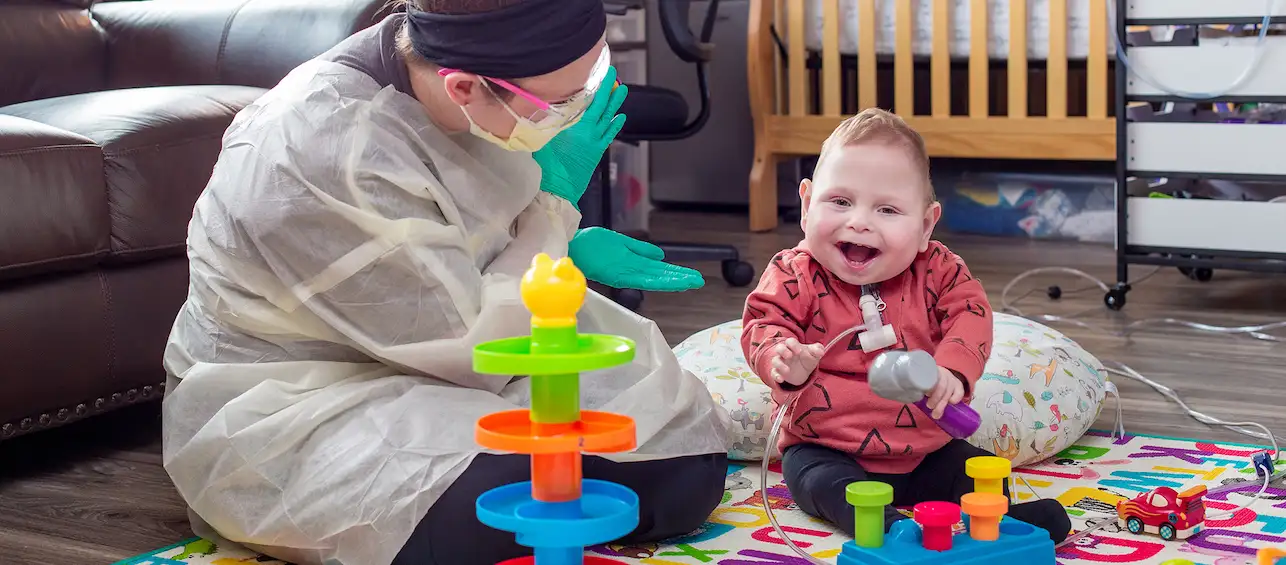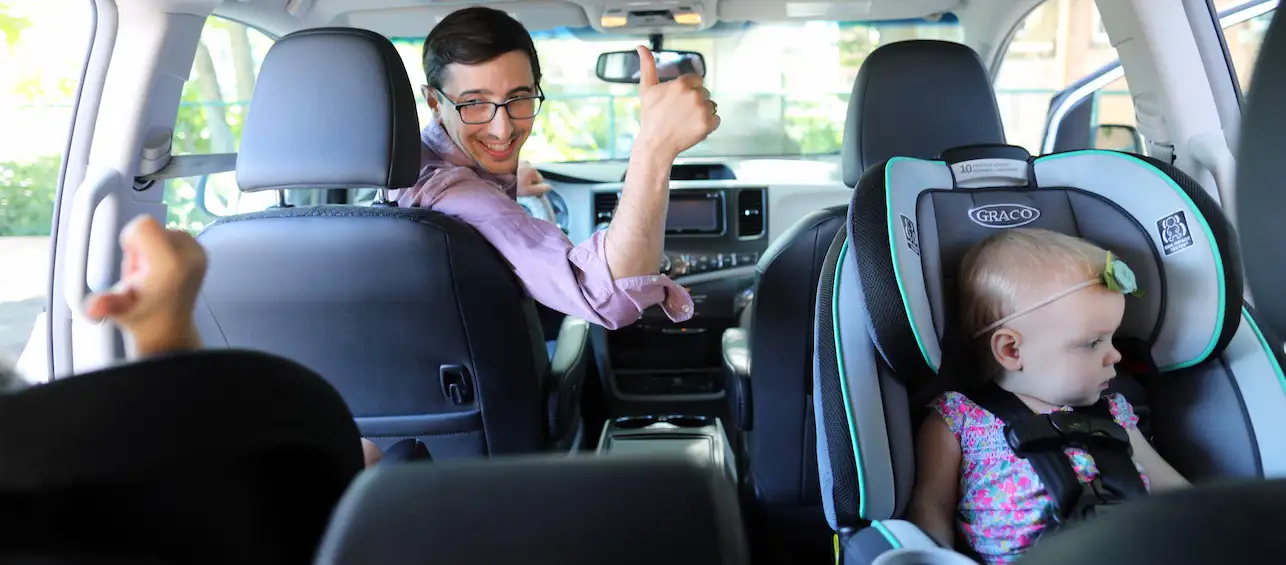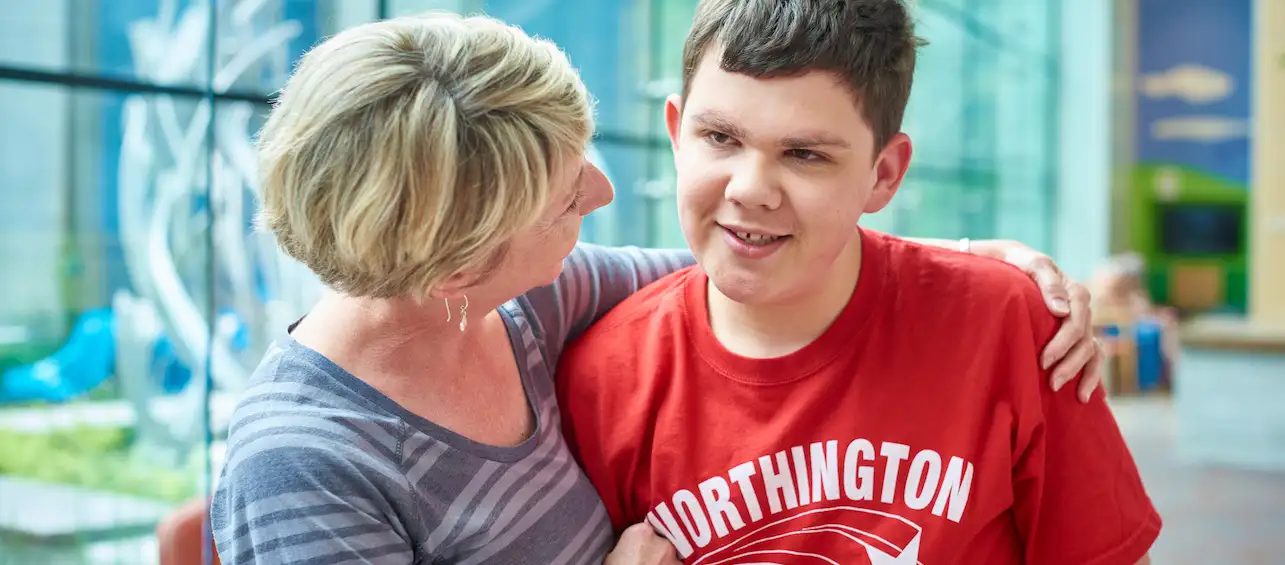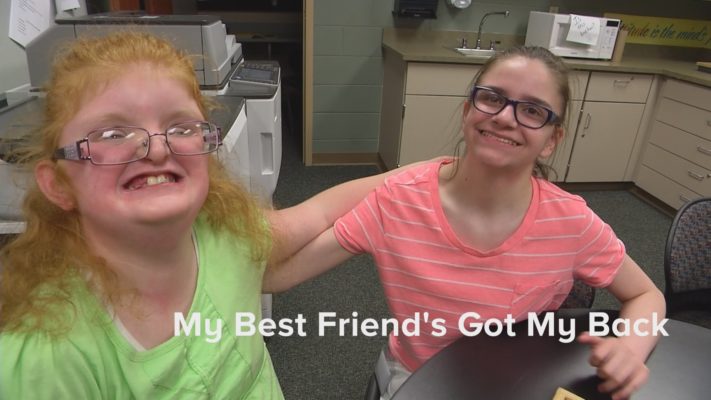Children who are considered medically complex require a very high level of daily medical care. This term is different than the more commonly known term of “special needs,” which usually indicates a child has developmental or cognitive delays. Some children with medically complex needs may also have developmental or cognitive delays, but not always.
Kids who have complex medical needs many times have multiple diagnoses, and their care often involves numerous medications, various types of advanced medical equipment, and specialized care from multiple providers. Frequently they are dependent on technology, needing home ventilation or tube feedings for daily functioning and quality of life.
Your child may have been born with their medical conditions, or might have developed them after an injury or long illness. Whatever the case, many resources are available to help you as you learn to care for a child with these complex needs.
Each year in the Complex Care Center at Cincinnati Children’s, we help care for hundreds of children with medically complex needs. We recognize both how challenging and how rewarding this journey can be. We know that it can sometimes feel overwhelming. Because of this, we created these checklists below to help as you start on this journey. We hope they help make this early stage of coordinating your child’s care a bit easier to manage.
Important to do’s to take care of
- Add your baby to your insurance plan (either private insurance or Medicaid).
- Find a pediatrician who understands your child’s medical needs.
- Ensure you have safe sleep options for your home.
- Sign up for your care provider’s online medical charts. At Cincinnati Children’s, we use MyChart. This tool gives you access to your child’s medical records, allowing you to view test results, a medication list, appointments, follow-up instructions, diagnoses and more.
- Determine transportation options if needed.
- If your child is technologically dependent, fill out a medical form through your electric company (Duke Energy for Ohio residents), so they have this information on file.
- If needed, find a private duty nurse (PDN) or trained caregivers.
- Make or update your will and/or guardianship paperwork to include your wishes related to care for your child after your death.
Resources to connect with right away
- If you work with a managed care organization (MCO), call and request a care manager if you do not have one through your primary care provider.
- Check with a financial advocate or social worker to see if you qualify for institutional Medicaid. This is an option for some families who may not already financially qualify but have a child who is hospitalized for 30 days or longer.
- Find a durable medical equipment (DME) company for medical supplies. Depending on your insurance and where you live, you may be able to use Cincinnati Children’s Home Care Services or a community DME company.
- Find out if you qualify for the federal government’s Supplemental Security Income (SSI) program. The SSI program can provide valuable monthly cash payments to children who are disabled under Social Security Administration rules and whose families have little income or resources.
- Learn about and sign up for your local Help Me Grow program. This program offers support for pregnant women, caregivers with new babies, and families with young children with developmental delays and disabilities.
- For Ohio residents, see if you qualify for the Ohio Department of Health’s Children with Medical Handicaps Program (CMH) (formerly called Bureau for Children with Medical Handicaps/BCMH). This healthcare program links families of children with special health care needs to a network of quality providers and helps families obtain payment for the services their children need. Many providers within Cincinnati Children’s are CMH providers.
- Look through the Cincinnati Children’s Special Needs Resource Directory, which was created specifically for Children or Youth with Special Health Care Needs (CYSHCN). This directory offers a wide range of local, state, national and international websites to help you.
Resources to keep in mind as your child grows
Once your child is 3 years old, start looking at local schools to begin preschool enrollment. After your child graduates from Help Me Grow at age 3, stay connected to your local Department of Disabilities, which can help you find resources such as waivers, funding through the Family Supports Services Program, respite care and more. Also look into your insurance options, as some plans will pay for diaper supplies after age 3.
Parenting a child with medically complex needs is a big job. You’ll quickly learn that you need a lot of support along the way. We hope these checklists help you get started off on the right foot.






